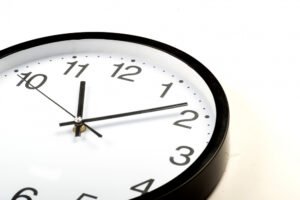For many of us, that first sip of coffee in the morning is like a magical elixir that jumpstarts our day. It’s the trusty companion we rely on to awaken our senses and kick our minds into gear. But what if I told you that you might be sipping your brew at the wrong moment? The timing of your coffee consumption can play a significant role in how effectively it can jolt you awake and keep you going throughout the day. Let’s delve into the fascinating world of stress chemicals and biological rhythms to uncover the optimal time to enjoy your morning coffee

TIMING
The million-dollar question – when should you actually drink your morning coffee? Well, the answer isn’t one-size-fits-all; it depends on a multitude of factors, including your personal preferences and unique physiology. However, as a general guideline, experts often recommend holding off on that caffeine infusion for at least 30 to 60 minutes after waking up. The rationale behind this advice lies in the realm of adenosine.
Adenosine is a neurotransmitter responsible for promoting sleepiness and drowsiness. Its levels steadily accumulate as we stay awake, contributing to our urge to catch some Zs. Since our adenosine levels are likely to be at their lowest ebb upon waking, this is when caffeine can have the most significant impact.
THE SCIENCE BEHIND THE WAIT
So, why the wait? It turns out that giving your body a bit of time to accumulate some adenosine upon waking can actually make your coffee work more effectively. By the time you indulge, you’ll get a more substantial jolt of alertness, thanks to the caffeine counteracting the drowsiness-inducing adenosine.
Medical professionals advise delaying your first cup of coffee for an incredible 90 to 120 minutes. This prolonged wait is consistent with the cortisol levels in our bodies’ natural ups and downs, which begin to fall about three to four hours after we get up. Waiting for cortisol levels to fall is a strategy in the wakefulness game that may help give your coffee a boost.
THE MID-DAY PICK ME UP
Now, what about that midday slump that often hits around 2 pm?. Around 1:00 pm, you might want to think about drinking a cup of coffee to prevent an energy slump. Because cortisol levels change throughout the day, strategically consuming caffeine can help you stay attentive.
FUELING YOUR WORKOUTS
For those who like to get active in the morning, coffee can be your pre-workout secret weapon. Caffeine can boost energy, focus, and physical performance, making it an ideal companion for your exercise routine. Experts recommend downing a cup 30 to 60 minutes before your workout to ensure the caffeine kicks in just in time to enhance your performance.

It’s important to note that individual responses to caffeine and cortisol levels can vary widely. That means there’s no one-size-fits-all solution when it comes to coffee timing. Pay attention to how your body reacts and adjust your coffee routine accordingly. Experiment with different intervals after waking up to discover the timing that suits your energy levels and daily rhythm best.
BEDTIME BREWS
While coffee can be your ally during the day, it can turn into a formidable adversary when bedtime beckons. Consuming caffeine too close to bedtime can interfere with the quality of your sleep, making it harder to drift off into dreamland. As a rule of thumb, it’s wise to bid farewell to caffeinated beverages, including coffee, a few hours before your planned bedtime.
In the end, the best time to enjoy your daily dose of coffee is a personal preference that hinges on various factors, including your sleep patterns, caffeine sensitivity, and daily schedule. By understanding the science behind caffeine, cortisol, and adenosine, you can fine-tune your coffee routine to seize the full benefits of your beloved brew. So, the next time you ponder the perfect moment for that cup of coffee, remember that timing can be the key to unlocking its true potential.




